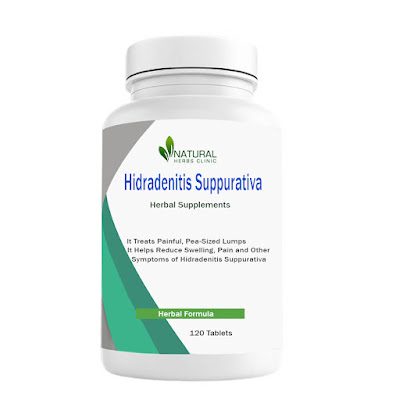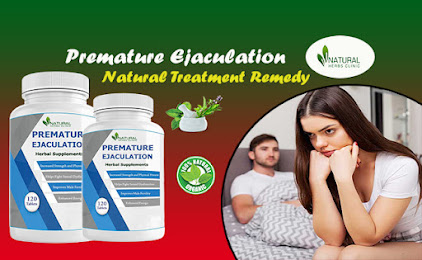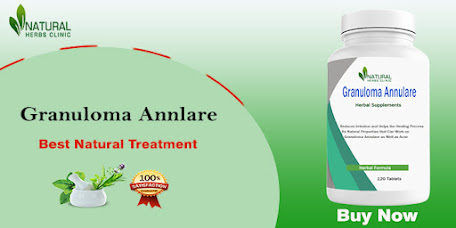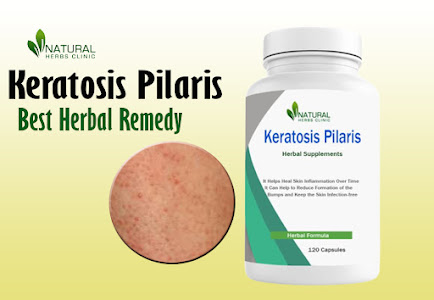Dietary Strategies for Managing Hidradenitis Suppurativa Symptoms
Introduction to Hidradenitis Suppurativa and its Symptoms
Hidradenitis
suppurativa (HS) is a chronic skin disease that causes painful lumps, nodules,
and abscesses to form in the armpits, groin area, buttocks, and other areas
around the body where sweat glands are present. HS is a long-term and incurable
condition with no known cause. Its symptoms may include inflamed boils or
lesions, itching or burning sensation on the affected area, and foul-smelling
odors due to infection.
Dietary Strategies for Managing Hidradenitis Suppurativa Symptoms
Nutrition plays an important role in reducing the symptoms of Hidradenitis Suppurativa. Natural treatments for HS such as diet modification can help reduce inflammation and improve overall health. In this blog, we will focus on dietary strategies for managing Hidradenitis Suppurativa Holistic Treatment symptoms. We will discuss how vitamins and minerals can help reduce inflammation as well as herbal remedies that may be beneficial in reducing HS-related pain and discomfort. A healthy diet is key to managing the symptoms of HS.
Eating plenty of fresh vegetables and fruits is important for providing essential vitamins and minerals that can help reduce inflammation associated with HS. Foods high in Vitamin C like citrus fruits are especially beneficial in reducing inflammation associated with HS. Foods high in beta-carotene such as sweet potatoes, carrots, spinach, kale, and broccoli are also beneficial in reducing inflammation from HS as they contain powerful antioxidants that can help reduce oxidative stress associated with the condition.
In addition to fruits and vegetables containing vitamins and minerals that can help reduce inflammation from HS, it’s also important to include healthy fats like those found in nuts and seeds in your diet. Healthy fats such as omega-3 fatty acids found in salmon or walnuts can help reduce inflammation associated with HS while also providing essential nutrients to keep your skin healthy. Eating foods rich in zinc such as fish or shellfish may also be beneficial for people suffering from HS as zinc has anti-inflammatory properties which can help reduce flare-ups of the condition.
For those looking for alternative treatments for their hidradenitis suppurativa symptoms, there are many natural remedies available that may provide relief from pain or discomfort associated with the condition. Herbal remedies like aloe vera have been known to provide relief from itching or burning sensation associated with HS flare-ups while also helping to heal broken skin more quickly due to its anti-inflammatory properties.
Other herbal remedies like turmeric have also been known to be beneficial in treating hidradenitis suppurativa due to its antioxidant properties which may aid in reducing oxidative stress caused by this condition while also helping decrease swelling associated with it. Eating a balanced diet full of fresh fruits vegetables whole grains proteins nuts seeds fish shellfish legumes beans lentils oats quinoa etc along with the herbal remedies mentioned above may be very beneficial for people suffering from hidradenitis suppurativa by providing them much-needed nutrition required for healing along with many other health benefits that come along with eating a balanced diet full of fresh produce.
At times supplements such as Vitamins C and E
zinc omega-3 fatty acids probiotics etc. may need to be taken depending on the individual’s needs so consulting your doctor before taking any kind of
supplement is highly recommended. In conclusion, making dietary changes is an
important step toward managing hidradenitis suppurativa symptoms. Eating
plenty of fresh fruits vegetables whole grains proteins nuts seeds fish
shellfish legumes beans lentils oats quinoa etc along with certain herbs can
play an important role in reducing inflammation while providing essential
nutrition required for healing. Additionally, supplements such as Vitamins C and E
zinc omega-3 fatty acids probiotics etc should be taken only after consulting
your doctor.
Dietary Strategies for Managing Hidradenitis Suppurativa Symptoms, including Natural Treatments, Vitamins and Minerals, and Herbal Remedies
Hidradenitis
Suppurativa (HS) is a chronic disease that can be uncomfortable and cause great
distress to those who suffer from it. However, sufferers of HS may find relief
from their symptoms through dietary strategies such as natural treatments,
vitamins and minerals, and herbal remedies.
Natural Treatments for Hidradenitis Suppurativa
Natural
treatments for HS focus on treating the underlying inflammation that causes
flare-ups. Such treatments include switching to a diet that is rich in
anti-inflammatory foods like fruits and vegetables as well as avoiding
processed foods with trans fats which can worsen inflammation. Eating
antioxidant-rich foods can also be beneficial because antioxidants help reduce
the free radicals associated with inflammation. Examples of antioxidant-rich
foods include dark leafy greens like spinach or kale, nuts and seeds such as
walnuts or chia seeds, and colorful berries such as blueberries or raspberries.
Also important in managing HS symptoms are healthy fats like olive oil or
avocados which provide essential fatty acids that are needed to reduce
inflammation.
Vitamins and Minerals for Hidradenitis Suppurativa Sufferers
In
addition to eating an anti-inflammatory diet, taking certain vitamins and
minerals can also help reduce the symptoms of HS. Supplementing with omega-3
fatty acids has been found to help reduce inflammation which may help lessen
the severity of HS flare-ups. Additionally, supplementing with Vitamin D can be
beneficial due to its role in reducing inflammation throughout the body while
also helping boost immunity. Vitamins A and E are also important for HS
sufferers since these two vitamins are known for their ability to reduce skin
inflammation which can be helpful during an HS flare-up.
Herbal Remedies for Hidradenitis Suppurativa
Herbs have long been used throughout history as natural
remedies for various ailments including skin conditions like Supplements
For Hidradenitis Suppurativa. Herbs naturally contain anti-inflammatory compounds so they
may help treat weakened tissue caused by swelling which is often associated
with an HS flare-up. Some herbs that may help manage symptoms include turmeric
which contains curcuminoids that have anti-inflammatory properties; boswellia
which is known to suppress inflammatory agents in the body; aloe vera which has
been used historically to treat skin irritation; licorice root which helps
boost immunity; and ginger which helps reduce cell damage caused by free
radicals associated with inflammation. Overall dietary strategies such as
natural treatments, vitamins and minerals, and herbal remedies offer people
suffering from hidradenitis suppurativa relief from their symptoms while
helping them manage their condition more effectively than medication alone. Through
a combination of an anti-inflammatory diet supplemented with essential
nutrients along with herbal remedies, it is possible to reduce flare-ups while
promoting overall well-being.
What to Avoid in Diet for Hidradenitis Suppurativa Sufferers
While
natural treatments such as vitamins, minerals, and herbs are important elements
of an effective dietary strategy to manage hidradenitis suppurativa symptoms,
it is also important to know which foods should be avoided. Eating the wrong
type of foods can worsen your condition, inflame your skin, or cause breakouts.
To ensure optimal health and reduce the risk of flare-ups due to diet, here are
some things you should avoid when it comes to food choices:
Processed Foods
Processed
foods are generally high in sugar, salt, artificial preservatives, and trans
fats. These tend to further aggravate the symptoms of HS and increase
inflammation in the body. Try to limit or avoid processed foods such as chips,
crackers, canned soups, and pre-packaged meals.
Sugar & Refined Carbohydrates
Sugar
is known for causing inflammation in the body while refined carbohydrates can
cause blood sugar fluctuations which could lead to breakouts. Avoid added
sugars like those found in sodas, cakes, and other sweet treats as well as
refined carbs like white breads and pastas.
Fried Foods
Fried
foods can be high in trans fat which has been linked to inflammatory skin
conditions like hidradenitis suppurativa. It’s best to stay away from fried
chicken, French fries, and other greasy items that can wreak havoc on your skin.
Alcohol & Caffeine
Both
alcohol and caffeine have been linked with increased levels of inflammation in
the body which could further exacerbate HS symptoms. So try cutting down on
alcoholic drinks like beer or wine as well as caffeinated beverages like coffee
or energy drinks.
By
avoiding processed foods, sugars and refined carbohydrates, fried foods,
alcohol, and caffeine from your diet you will be taking important steps towards
managing hidradenitis suppurativa symptoms.
Natural Treatments for Hidradenitis Suppurativa Can Help You Maintain Optimal Skin Health
Vitamins
and minerals for HS sufferers along with herbal remedies can also help maintain
optimal skin health. Herbs such as turmeric have anti-inflammatory properties
that may help reduce swelling associated with hidradenitis suppurativa.
Supplementing with fish oil rich in Omega 3 fatty acids may also provide relief
from HS symptoms.
When
it comes to managing hidradenitis suppurativa through diet it's important to
remember what not to eat so that you can prevent flare-ups due to poor eating
habits. By following these dietary strategies you will be strengthening your
overall well-being while reducing the risks associated with this condition.
Benefits of a Healthy Diet for Hidradenitis Suppurativa Patients
Eating a healthy diet is one of the most important steps that HS patients can take to manage their symptoms and improve their overall quality of life. Research has shown that making dietary changes can play an integral role in reducing the frequency and intensity of flare-ups. The key to finding relief is to incorporate Natural Treatments For Hidradenitis Suppurativa (HS) into your daily routine. This includes adding vitamins and minerals for HS sufferers, as well as herbal remedies for HS, into your diet.
By using natural treatments for HS, you can reduce inflammation and minimize skin irritation, as well as improve your overall immune system health. There are a variety of vitamins and minerals that are beneficial to people with HS, such as vitamins A, C, D, E, K, zinc, selenium, and omega-3 fatty acids. Vitamins and minerals help to reduce inflammation that is associated with flare-ups while providing essential nutrients for overall health. Herbal remedies may also be beneficial in managing symptoms by helping to reduce inflammation and increase circulation throughout the body.
Popular herbs include turmeric, ginger, green tea extract, and aloe vera gel. Additionally, it is important to avoid foods that are known to trigger flare-ups or worsen existing symptoms. Common triggers include dairy products such as cow’s milk or cheese; foods high in sugar or processed carbohydrates; caffeinated drinks like coffee or energy drinks; alcohol; spicy foods; and fried foods.
It is best to consult with your healthcare provider about which
specific foods may trigger flare-ups for you so you can avoid them in order to
maintain optimal health. Implementing dietary strategies for managing
Hidradenitis Suppurativa Symptoms is essential for reducing flare-ups while
improving overall health and wellness. Natural treatments like vitamins and
minerals for HS sufferers combined with herbal remedies provide powerful tools
that allow you to take control of your health while leading a happy and
fulfilling life.
Conclusion
Hidradenitis
Suppurativa (HS) is a chronic skin condition that can be difficult to manage.
However, the good news is that there are dietary strategies you can use to help
reduce the symptoms of HS. Natural treatments, such as vitamins and minerals,
herbal remedies, and certain food groups can be beneficial for people who
suffer from HS. It’s important to talk to your doctor about what dietary
changes might work best for you. They can provide advice and guidance on what
type of food will help you best manage the symptoms of HS. Ultimately, it’s important
to remember that dietary strategies are not a replacement for medical care. If
you have any questions or concerns about managing your HS symptoms, it's best
to consult with your doctor or healthcare provider. With their help, you can
determine which diet-based treatment plan is best suited for you and your
condition.




Comments
Post a Comment